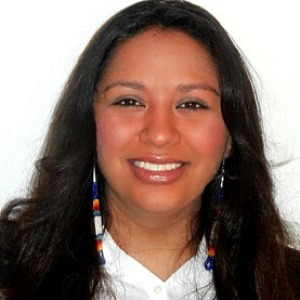Meet the 2016-17 Sherman Centre Graduate Fellows
The Lewis & Ruth Sherman Centre for Digital Scholarship* has announced the recipients of the 2016/2017 Sherman Centre Graduate Fellowship.
The fellowships are awarded to emerging scholars who are interested in using digital tools, techniques and methods to advance their research.
“We received a number of high-caliber applications from graduate students across McMaster this year, which is indicative of the continued growth and interest in digital scholarship and the digital humanities on campus,” says Andrea Zeffiro, academic director of the Sherman Centre. “We look forward to working with these talented, innovative scholars and to seeing their imprint on the growing community of Sherman researchers.”
The fellows will each receive a $1500 stipend as well as workspace in the Centre for the coming academic year.
Learn more about this year’s Sherman Centre Graduate Fellows:
Mica Jorgenson, Doctoral Candidate in History

This Sherman Centre Fellowship project supplements my doctorate research on the environmental history of nineteenth century global gold rushes. My in-progress dissertation argues that international influences affected Canada’s relationship with nature during the industrialization of the primary resource industry. I use the Porcupine gold rush in northern Ontario as a case study to show how transnational forces can effect local environments. The current project is a flow map of people, goods, and ideas moving around the world between 1848 (the first gold rush in California) and 1909 (Porcupine). Using a database of moved objects compiled during primary research, the flow map project seeks to identify directional and thematic trends in overseas movements associated with the gold rush. The current project builds on previous mapping projects in which I overlaid historic maps onto modern satellite imagery to show changes in claim boundaries and waterways over time. By treating the gold rushes as linked international events, this work (and my dissertation as a whole) challenges the dominant trend in the historical discipline toward national research constrained by political borders. Learn more about Mica’s research.
Kelsey Leonard, Doctoral Candidate in Social Policy

This digital scholarship project will develop on an online toolkit, or data portal that consolidates available data on water security issues affecting Indigenous Nations in the Columbia River Basin (CRB) and Great Lakes-St. Lawrence Basin (GLSLB). Indigenous Nations are increasingly experiencing the effects ofclimate change and taking steps to adapt to current and future environmental risks. In response to ecological changes and altered human activities, First Nations in Canada and the United States are creating climate change adaptation programs for water security. The management of water resources by First Nations is inherently transboundary as those nations existed prior to modern border delineations. The digital scholarship project highlights First Nation strategies from the CRB and GLSLB to enhance equitable and responsible management of Indigenous water resources. Highlighting the Traditional Ecological Knowledge (TEK) of First Nations and advancing innovation pathways through Indigenous mapping using story maps and geospatial data.
Samantha Stevens-Hall, Doctoral Candidate in History

The proposed project is a public access online database of primary source and supplementary materials in African intellectual history. The materials incorporated come from my archival work for my dissertation. This database would bring together these scattered sources into one easily accessible online resource. The database will initially have three portfolios of Uganda intellectuals from the period of transition to British colonial rule in Uganda in East Africa. These portfolios will be comprised of short biographies, no more than 500 words, written in an encyclopedic style and accompanied with a few excerpts from their written works, no more than five pages each. The excerpts will be selected to show the dynamic character and variety in their writing as a means to support the key arguments in my thesis that these men were multidimensional figures engaged in a vibrant culture of knowledge exchange and debate over representations of the past. Learn more about Samantha’s research
* The Sherman Centre, which is a part of McMaster University Library, provides consulting and technical support to faculty and graduate students with all levels of technological experience. The Sherman Centre consults on any stage or aspect of a digital scholarship, or pedagogical project to help determine the digital tools, techniques and methods that best suit the project, big or small.
